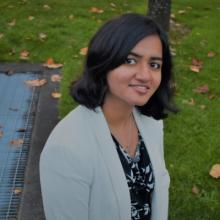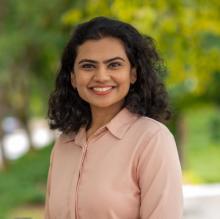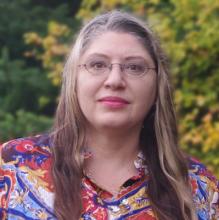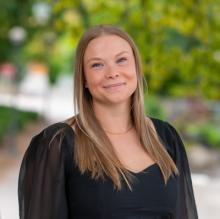In this project, we plan to explore the feasibility of inexpensive and portable alternatives to conventional screening techniques. We plan to develop an inexpensive microscope capable of detecting sickle cell disease, which has the potential to increase the access to sickle cell screening in rural communities.
Research Description
Sickle cell disease is an inherited blood disorder that affects millions of people around the world. The disease results in red blood cells becoming sickle-shaped and disrupting blood flow in small vessels, which can lead to chronic organ damage and early mortality. Timely screening and diagnosis of the disease is important to improve patient outcomes, especially in rural or remote settings, where the lack of awareness about the disease and the prevalence of infectious diseases increases the severity of the disease. In this project, we plan to explore the feasibility of inexpensive and portable alternatives to conventional screening techniques. We plan to develop an inexpensive microscope capable of detecting sickle cell disease, which has the potential to increase the access to sickle cell screening in rural communities.
What does being a Public Scholar mean to you?
Public scholarship, to me, means engaging in research focused on communities. This includes public engagement in identifying the right problems, involvement and input in research outcomes, and finally (and most importantly) a returned benefit to the communities involved. Being a public scholar is an opportunity to be creative, and a responsibility to give back to the community.
In what ways do you think the PhD experience can be re-imagined with the Public Scholars Initiative?
The Public Scholars Initiative provides PhD students the academic freedom to explore non-traditional research projects that are aimed at benefitting the public. There is enormous value in re-directing part of the creative energy of graduate students to pursue and collaborate on projects focused on public impact. Moreover, in engineering and medical research, there is significant potential and value in bringing the innovations from the scientific community to the communities in need.
How do you envision connecting your PhD work with broader career possibilities?
Pursuing this project, through the support of PSI, has already helped me build connections with multiple researchers and experts who share similar interests in creating affordable diagnostic tools for rural settings. Getting a chance to work and engage with the leaders in the field will hopefully result in further collaborations with such experts.
How does your research engage with the larger community and social partners?
Successfully carrying out this project will require a collaborative effort between researchers, health workers, local communities, and non-governmental organizations. Input on the technology will be provided by researchers in the field, guidance on the protocols used in the study will be provided by health workers, and permission to conduct the research will be provided by local communities and respective ethics boards. Feedback from all of these groups is critical and will guide the trajectory and outcome of this research project.
Why did you decide to pursue a graduate degree?
Graduate school provides a unique opportunity to methodically exercise curiosity. During my master’s program, we explored the dynamics of fluid injection into skin, which had not been studied in such a way before. The opportunity to work on novel projects like those, in collaboration with experts in the field, and the chance to learn new things is really what motivated me to pursue a PhD program.
Why did you choose to come to British Columbia and study at UBC?
The opportunity to work with my supervisor, Prof. Stoeber, who is a leader in hollow microneedle technology, and the opportunity to collaborate with other researchers in an interdisciplinary project on blood diagnostics made me choose UBC. From my earlier graduate experience at UBC (MASc.), I also found the faculty, staff and the students really welcoming and supportive.
Public scholarship, to me, means engaging in research focused on communities. This includes public engagement in identifying the right problems, involvement and input in research outcomes, and finally (and most importantly) a returned benefit to the communities involved. Being a public scholar is an opportunity to be creative, and a responsibility to give back to the community.




